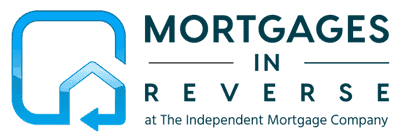Did you know that as a senior citizen in Vancouver, you can tap into the equity of your home without selling it? That's where a financial tool, known as a reverse mortgage, comes into play.
It's a loan that uses your home as a guarantee and grants you cash based on its value. However, like any financial decision, it's not without its intricacies.
So, wouldn't you want to learn more about how this could potentially enhance your financial security?
Key Takeaways
- Reverse mortgages offer financial freedom and flexibility for Vancouver seniors, utilizing their home equity.
- These loans, requiring no monthly payments, are not considered taxable income.
- Eligibility for reverse mortgages includes age over 55 and ownership of the primary residence.
- Despite potential drawbacks like higher interest rates and risk of default, the process is straightforward with proper guidance and information.
Understanding Reverse Mortgages
To fully appreciate the potential benefits of reverse mortgages for Vancouver seniors, you must first grasp the basic concept of this financial tool. It's essential to clear up any mortgage misconceptions, as understanding the reverse mortgage evolution is critical to informed decision-making.
A reverse mortgage is a type of loan designed specifically for seniors who own their homes outright or have significant equity. It allows you to convert part of that equity into tax-free funds. Unlike traditional mortgages, you're not required to make monthly payments.
Over time, reverse mortgages have evolved, providing more flexibility and safeguards for borrowers. Initially, they were lump-sum loans, but now, you can opt for monthly payouts, a line of credit, or a combination. This evolution has helped eliminate some common mortgage misconceptions.
However, it's crucial to understand the specifics. You retain ownership of your home, but the loan becomes due upon selling the house, moving out permanently, or upon your death. The loan amount, including the accrued interest, must then be repaid. Consequently, it's vital to consider your long-term plans and discuss this option with a financial advisor.
Benefits of Reverse Mortgages
Harnessing the power of reverse mortgages can provide you, as a senior homeowner in Vancouver, with several significant benefits that enhance your financial security. These benefits don't just offer you financial freedom, but also peace of mind in your golden years.
Among the advantages, two key aspects to consider include the tax implications and inheritance planning. Unlike traditional income, the funds from a reverse mortgage are not considered taxable income. This means you won't need to worry about a higher tax bill when you tap into this resource.
In terms of inheritance planning, a reverse mortgage can be a strategic tool. It gives you the flexibility to pass your property to your heirs without the burden of a traditional mortgage payment, providing them with an unencumbered asset.
To summarize, here's a brief overview in tabular format:
| Benefit | Description | Impact |
|---|---|---|
| Financial Freedom | Access to home equity without selling | Enhances living standard |
| Tax Implications | Not treated as income | No increase in tax liability |
| Inheritance Planning | No regular mortgage payments for heirs | Leaves a clean asset |
| No Monthly Payments | Only pay when you sell or move | Reduces financial stress |
| Flexibility | Use funds as needed | Supports lifestyle choices |
Eligibility for Reverse Mortgages
While understanding the benefits of reverse mortgages provides a clear picture of their potential, it's also crucial to know if you're eligible to take advantage of this financial tool. In Vancouver, certain criteria need to be met to qualify for a reverse mortgage.
Here's a quick rundown:
- You must be at least 55 years old. The older you are, the higher the percentage of your home's value you can borrow.
- The property must be your primary residence. Investment properties and vacation homes aren't eligible.
- You should have a significant amount of equity in your home. Typically, the more equity you have, the larger the loan you can get.
It's also worth noting that while reverse mortgages can provide financial security, they may not be the best fit for everyone. The credit impact can be significant, especially if you default on your loan. This is where mortgage alternatives come into play.
There are several options available, like home equity lines of credit (HELOCs) or refinancing your existing mortgage. These alternatives could provide the financial flexibility you need without the long-term commitment of a reverse mortgage.
Potential Drawbacks and Risks
Despite the financial relief offered by reverse mortgages, it's essential to consider the potential drawbacks and risks associated with this type of loan.
Foremost among these are the interest rates. They're typically higher than traditional mortgages or home equity loans. This can lead to increasing loan balances over time, as the interest compounds. This may gradually eat into the equity of your home, leaving less for you or your heirs when the property is eventually sold.
Another potential risk lies in loan defaults. If you fail to meet the obligations of the loan, such as keeping up with property taxes, homeowner's insurance, or necessary home maintenance, you could face the risk of default. In such an event, the lender could foreclose on your home, leaving you without a place to live.
Moreover, reverse mortgages can sometimes come with hefty fees, including origination fees, closing costs, and servicing fees. These can add up and significantly reduce the amount of loan proceeds you receive.
Understanding these potential drawbacks and risks is vital in making an informed decision about whether a reverse mortgage is the right choice for your financial situation.
Navigating the Application Process
After carefully weighing the potential drawbacks and risks, if you find that a reverse mortgage suits your financial needs, you'll need to understand the application process. It involves several steps, and success requires careful attention to documentation requirements and awareness of potential application pitfalls.
Here's a brief outline of the process:
- Initial Consultation: Start by consulting with a reverse mortgage lender or broker. They'll provide detailed information about the product, discuss your financial situation, and assess your eligibility.
- Documentation Assembly: You'll need to gather and submit necessary documents. These may include proof of age, home ownership, and income. Be thorough to avoid application pitfalls.
- Application Submission: Once your documents are in order, you'll fill out and submit the application. Your lender will review it, potentially request additional information, and then make a decision.
Frequently Asked Questions
How Does a Reverse Mortgage Affect My Estate and Inheritance for My Heirs in Vancouver?
A reverse mortgage can change your estate planning implications. It's a loan against your home that you don't have to pay back while you live there.
However, it'll reduce the equity in your home, leading to smaller inheritance considerations for your heirs. When you pass away or sell your home, the loan must be repaid, usually by selling the house.
This may leave less for your heirs than you'd originally anticipated.
What Are the Tax Implications of a Reverse Mortgage for Seniors in Vancouver?
You'll find that reverse mortgages don't have direct tax implications in Vancouver. The money you receive isn't considered taxable income.
However, tax deductions potential could arise if you pay the interest on your loan. Mortgage interest implications come into play if you choose not to pay the interest annually, as it's added to your loan balance, potentially affecting your estate and inheritance.
Always consult a tax professional to understand your individual situation.
How Can Reverse Mortgages in Vancouver Be Beneficial for Those With Long-Term Medical Conditions?
If you're a senior with long-term medical conditions, reverse mortgages can offer financial relief. They provide income stability, ensuring you're not living paycheck to paycheck. Plus, the funds can cover medical expenses, easing that financial strain.
Keep in mind, this is a loan against your home's equity, so you're essentially using what you've already paid into your home to finance your needs. It's a valuable tool for managing medical costs without compromising your lifestyle.
What Are the Alternatives to Reverse Mortgages for Enhancing Financial Security in Vancouver?
You've got options beyond reverse mortgages for financial security in Vancouver. Consider senior investments like bonds or mutual funds that offer steady returns.
Also, strategic retirement planning can provide substantial financial safety. This might involve downsizing your home, allocating assets wisely, or investing in annuities for guaranteed income.
Can a Reverse Mortgage Be Refinanced or Altered Once It's Been Established in Vancouver?
Yes, you can refinance or alter a reverse mortgage once it's established. The refinancing process depends on the terms of your original loan and mortgage regulations in Vancouver.
You'd need to meet certain requirements, like an increase in your home's value. Be sure to carefully review all your options and implications, as refinancing could potentially change your payments or lengthen your loan term.
Always consult with a financial advisor to make the best decision.

